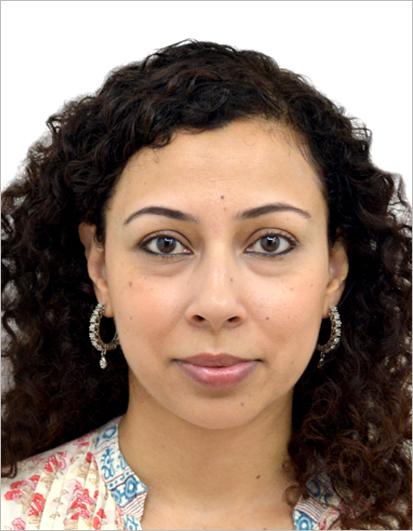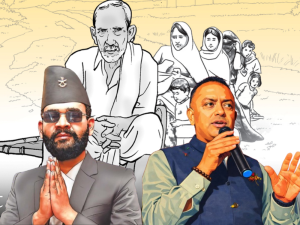Columns
Free speech—India’s biggest test
Hiccups in its democratic structure often result from a tendency to undermine freedom of expression.
Ruhi Tewari
The truest test of an evolved, flourishing and mature democracy is not its electoral culture, or the right of every citizen to vote, or a diverse political system, but where it stands on the scale of freedom of expression. On a scale ranging from absolute to highly restrictive, freedom of expression in a democracy should unequivocally remain towards the former.
India is a brilliant example of a democracy that has weathered much and where only the vote of its citizens determines who will rule. Voters decide the fate of political players, and right and power remain total and undiluted. Any political highhandedness or attempts to establish hegemony have been humbled at the hustings.
The hiccups in India’s democratic structure, however, have more often come from a tendency to undermine the most significant aspect—freedom of expression. The draconian Emergency imposed by former Prime Minister Indira Gandhi in the mid-1970s remains by far the most glaring, but unfortunately, not the only example. Several democratically elected governments, across levels, have periodically attempted to curtail dissenting voices that have made them uncomfortable, disrupting the seamless flow of democracy.
A string of recent incidents following the terror attacks targeting innocent tourists in Kashmir’s Pahalgam and India’s retaliatory action against terror camps in Pakistan (Operation Sindoor) have added to this unfortunate trend in Indian democracy. The arrest of Ashoka University professor Ali Khan Mahmudabad and a 19-year-old Pune student for their social media posts in connection with Operation Sindoor has betrayed how fragile our idea of freedom of speech and expression continues to be, despite being a complete democracy for over seven decades.
The untoward arrests
Professor of Political Science at Delhi’s Ashoka University, Ali Khan Mahmudabad, was arrested by the Haryana Police on May 18 after two separate First Information Reports (FIRs) were registered against him regarding two social media posts related to Operation Sindoor. Mahmudabad was released a few days later on May 22, a day after the Supreme Court granted him interim bail.
On May 9, a 19-year-old Pune student was arrested for a social media post she shared on Instagram two days earlier. The post criticised the Indian government regarding India-Pakistan hostilities and Operation Sindoor. Even though the student quickly deleted her post, the damage had been done.
Granting her bail, the Bombay High Court came down heavily on the Maharashtra government for “ruining her life” and turning her into a “hardcore criminal”.
Incidentally, the Bharatiya Janata Party is in power in both Haryana and Maharashtra.
But these are hardly the only instances of state intolerance towards dissenting or uncomfortable voices, with criminal charges becoming the go-to resort. In the recent past, stand-up comedians have also borne the brunt of this tendency, as have academics, activists and journalists. ‘Go To Pakistan’ became a common refrain to castigate those whose views did not merge with the majoritarian sentiment.
While the Courts have often stepped in as moderating forces to protect freedom of expression, the fact that dissent, disagreement or even slightly divergent views are greeted with not just public backlash, but more frighteningly, disproportionate state action, shows the extent to which speech and expression are increasingly being stifled.
Why do they undermine democracy
In the cases of both Mahmudabad and the Pune student, state action was wholly unjustified and extreme. Neither really said or shared anything even remotely offensive that ought to have invited wrath at all. But what they—or the numerous people before them who have been subjected to such charges—said or did not say is not even the point here.
A democracy ought to be more thick-skinned than to take offence at criticism, more tolerant than to allow difference of opinion to become an excuse to clamp down on free speech and more resilient than to let freedom of expression become a slave to the vanities of the state and political ecosystem.
The Constitution provides for freedom of speech and expression with reasonable restrictions. The premise of emphasising ‘reasonable’ restrictions is to ensure free speech is not curbed based on unreasonable whims. A government, elements of the state or political platforms, finding certain views objectionable, or inimical to their interests or contrary to their worldview, is not a reasonable reason to clamp down on them. All that does is expose the fragility of our collective egos and our growing insecurities as a nation.
A democracy is incomplete without the most important and pervasive provision—free speech. Even if these incidents of clampdown seem isolated and are not the norm, they cause adequate harm to the very spirit of democracy.
Unfortunately, it isn’t just the government or state that displays these streaks of intolerance. Recently, the Congress party publicly chided its senior leader and Member of Parliament Shashi Tharoor for taking a rather vehement pro-government stand during his visit abroad as part of an official all-party delegation to spread India’s message on its tensions with Pakistan.
Sure, the Congress may have found Tharoor’s (who, by the way, has decades of experience in international relations, no less) stand uncomfortable for its domestic politics. But by publicly standing against him, India’s oldest political party displayed its frail respect for free speech and flawed understanding of its place in democracy.
However, the timing makes these instances of suppression of free speech and views since Operation Sindoor more unfortunate. The biggest response India can give to Pakistan is to underline how robust a democracy it is, one where all view points and voices are allowed to co-exist, where debate and disagreement is par for the course and the fundamental rights of every citizen are paramount—a sharp contrast from the neighbouring country’s withering polity where the voice of the Army towers above that of democratic values. If the lack of true democracy is Pakistan’s biggest weakness, its presence is India’s greatest strength. The beauty of the Indian nation is the heady cocktail of diversities it represents, and how in this heterogeneity, every voice, every thought, every ideology and every life choice has the right to flourish. This is India’s biggest soft power, and will always be. India must live up to it at all costs.
Salman Rushdie once said, “Free speech is the whole thing, the whole ball game. Free speech is life itself.” He couldn’t have been more right.




 14.86°C Kathmandu
14.86°C Kathmandu

.jpg&w=200&height=120)













